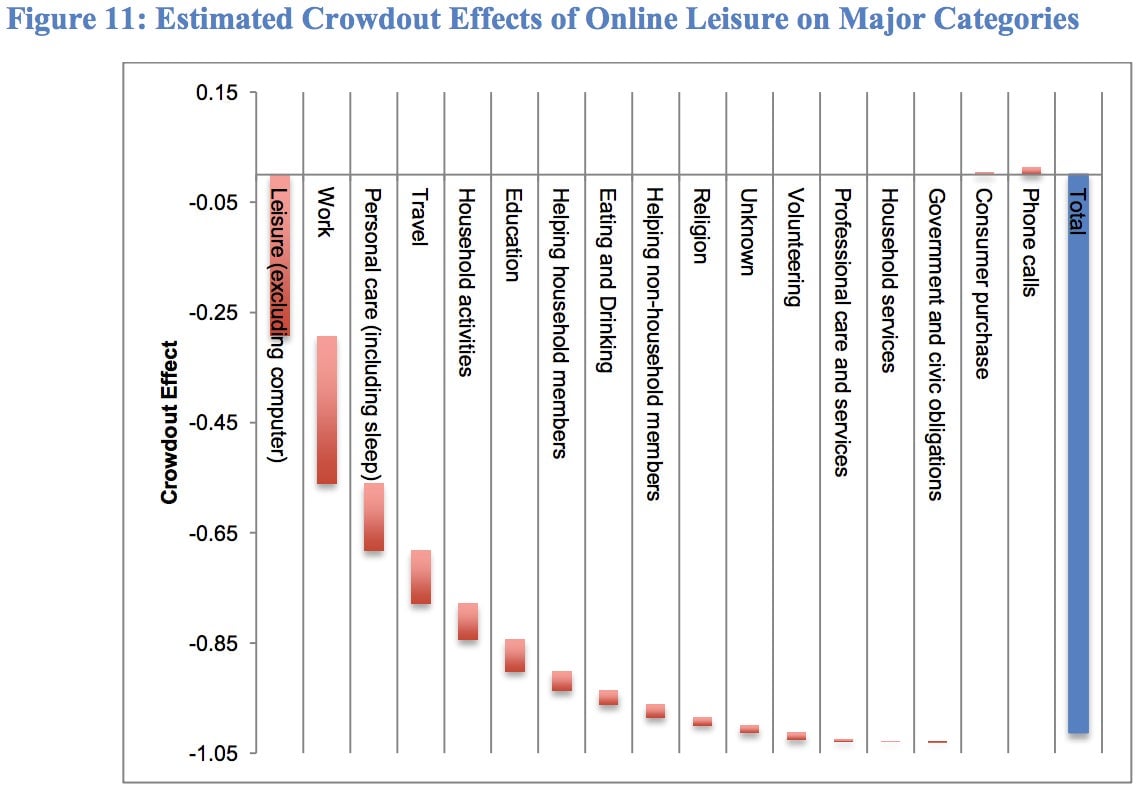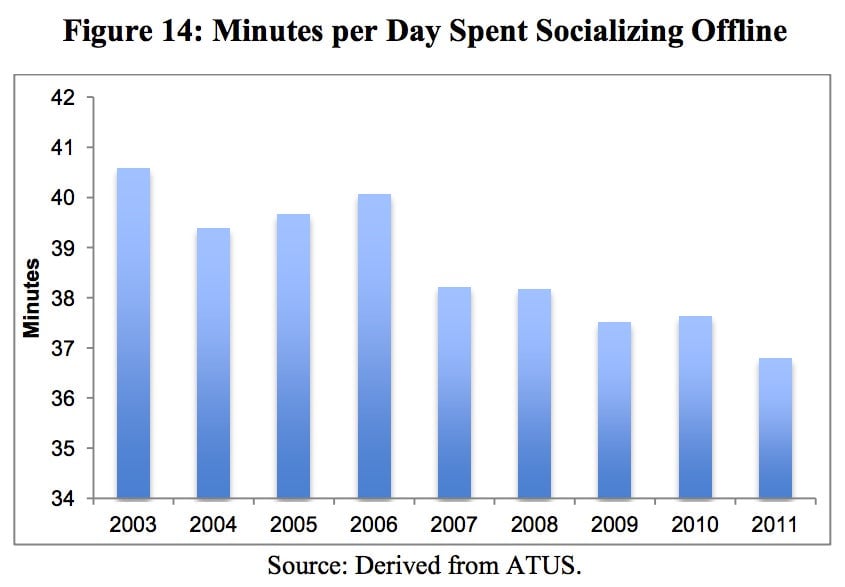What people miss out on when they’re online
New research from Scott Wallsten, an economist at the Technology Policy Institute in Washington, DC, attempts to show exactly what Americans are missing out on because they’re glued to their computer screens.

New research from Scott Wallsten, an economist at the Technology Policy Institute in Washington, DC, attempts to show exactly what Americans are missing out on because they’re glued to their computer screens.
Wallsten limits his study to “online leisure,” or time spent online doing things like combing social networks, browsing for non-work purposes, instant messaging, etc. (Online games—even though they can take up a lot of leisure time—are excluded because of the way the data Wallsten used are collected by the US Census Bureau. Despite the data’s shortcomings, Wallsten finds that online leisure time still crowds out other activities.)

Unsurprisingly, the time people spend on the computer “for leisure” has increased exponentially in the last few years. However, computer leisure still comprises a mere 13 minutes of the five hours of leisure time the average American has in the day.
Even so, this computer time has a notable impact, eating into things like sleep, work, travel, and household chores. For every minute that they spend lazing on the computer, Americans spend approximately 16 fewer seconds working, seven fewer seconds sleeping, six fewer seconds traveling, four fewer seconds doing household chores, and three fewer seconds educating themselves. Although Wallsten can’t prove that more computer time causes less sleep, for instance, he concludes, “that online activities, even when free from monetary transactions, are not free from opportunity cost.”
This trend is particularly strong among young people. For example, every minute 15- to 19-year-olds spend online leads to 18 fewer seconds doing educational activities. For Americans 20-24 years old, however, the same minute of online leisure is only associated with losing about seven seconds of educational activity. For older Americans, the impact is even smaller. This data suggests—though does not definitely prove—that teenagers are more likely to devote time that would otherwise be devoted to educational activity to surfing the web or instant messaging than do slightly older young adults.
Last but not least, if one wants to enumerate the effects of the digital age on human relationships, then look no further than the number of minutes the average American spends socializing offline. From 2003 to 2011, the average American cut her offline socializing time by almost 5 minutes.
